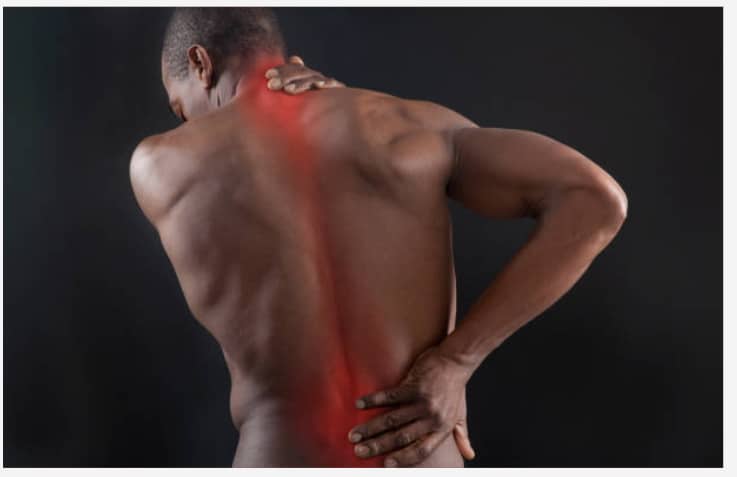Back pain has remained mankind’s oldest agony and has continued to elude medical science even till this day. Common back pain could metamorphose into acute and, or chronic pain if it lingers for a period of time without adequate treatment.
A lot of people do not get adequate and cost-effective treatment for their back pain. They are then left to suffer the pains for years. Constant physical pain can impact ones emotional wellbeing and in fact, people living with chronic back pain can become so depressed and in some cases driven to commit suicide just to escape the pain!
There are three places likely to be affected by pain in the human back. They are the neck (neck pain), mid back (mid back pain) and finally the lower back (lower back pain). Pain in these places can greatly affect one’s daily activities and efficiency. The economic and human discomfort costs are enormous.
According to the Global Burden of Diseases Study, six-hundred-and-nineteen million people suffered from lower back pain globally in 2020. It projects that eight-hundred-and-forty-three million people will suffer from the medical condition by 2050 with Africa predicted to have the highest percentage of this figure. Unfortunately, the prevalence rate in Nigeria has not been adequately determined. Some of the risk factors that predispose people to back pain, according to the study, include work conditions, obesity, smoking and many other. The study shows that lower back pain increases with age and the peak age impacted is 85 and that, globally, lower back pain is more prevalent in women than men in all age groups.
The study also confirmed that low back pain is the leading cause of disability in most countries. It is expected that both the total disability burden and disease-related costs will further increase in the coming decades.
The decade 2020–2030 has been designated the “United Nations Decade of Healthy Ageing”, and this initiative provides a strong platform to strengthen national, regional, and global health initiatives to decrease the burden of back pain through public awareness campaigns and recommendations. This will help to mitigate the increasing burden and the impact it is having on health and social systems.
In response to this, a global effort is being made to provide clearer directions for change in policy and practice and to support the use of evidence-based management and prevention of back pain.
In 2018, a three-part series on the definition, best-evidence-based treatment, and future research directions for lower back pain was published. The series highlighted the roles of advice and education that support self-management, physical, and psychological interventions, especially as first-line treatments for the condition. However, there is still inappropriately high usage of imaging (such as X-rays, MRI), prescribed bed rest, non-steroidal anti-inflammatory drugs, spinal injections, and other invasive procedures of questionable efficacy to treat back pain.
Paradoxically, the use of treatments of no or little efficacy can delay recovery and potentially increase the risk of long-term back-related disability, and consequently increase the burden of this condition globally.
Common back pain is arguably not a medical problem. It is more of a physical problem; hence physical therapy or physiotherapy, skillfully performed could be a preferred panacea.
The Back Pain Care Foundation, founded by
Dr Charles Chidi Ehirim, a musculo-skeletal physiotherapist as a subsidiary of Omega Physiotherapy and Back Pain Care Clinics located in Onitsha and Awka, has taken the bull by the horn to confront the monster through conferences, seminars and capacity building workshops and offering skillful physiotherapy interventions.
In line with this vision, the foundation will hold a two-day free intervention physiotherapy in Awka, Anambra state, for people suffering from neck pain, upper back pain and lower back pain. The venue is Omega Physiotherapy and Back Pain Clinics at No.21 Emma Nnaemeka street, off Arthur Eze Avenue, Awka on Friday December 8, and Saturday December 9, 2023. Time is 9am to 4pm each day. To contact Dr Ehirim, call him on 0-8-0-3-3-2-9-9-2-2-2.
DR CHARLES EHIRIM









Comments are closed for this post.